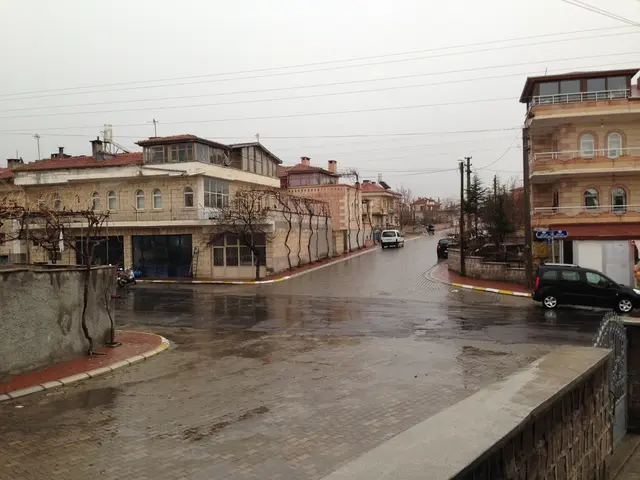Lawyers protesting over Security Decree, causing legal system disruption among criminal and justice professionals
Protesting Rome's Security Decree: A Three-Day National Strike
The Criminal Chambers are up in arms against the Security Decree, enforced on April 12, leading to a three-day nationwide national strike on May 5, 6, and 7. This involves abstaining from hearings and all related activities to raise awareness among the general public about the issue.
The decree, lawyers argue, violates fundamental constitutional principles and rights. The aim is to vacate courtrooms to educate and alert civil society about the concerns surrounding this legislation.
Critics point out the misuse of the tool of urgent decree-making, employed without adhering to the constitutional standards. The decree, in essence, propagates the same draft law that had been stagnant in Parliament for over a year. The hasty approval by the Council of Ministerspost-adjustments on certain points includes measures like imprisonment for pregnant women and prohibiting phone SIM card purchases for irregular migrants.
Concerning criticisms raised by Italian lawyers are abuse of urgent decree-making, inadequate justification for urgency, and an overly repressive approach that may exacerbate the dire conditions in Italian prisons, where there is overcrowding, lack of educational activities, and challenges in ensuring detainees' mental and physical health.
Protests are scheduled in various cities. In Rome, today at 10:30 am, a demonstration is planned in Piazza Cavour, followed by an assembly at 12 pm in Turin at the Council of the Order's premises in the Palace of Justice. Lawyer Giulia Boccassi of the Board of the Union of Italian Criminal Chambers and Professor Andrea Giorgis, a constitutional law professor, will speak. They urge mobilization to safeguard democratic principles and fundamental rights, emphasizing the importance of the right to defense and a fair trial, particularly for the marginalized who may have these guarantees jeopardized by the new legislative provisions.
The Criminal Chamber of Eastern Lombardy has arranged an assembly at 10 am in the Panettieri Hall of the Brescia Tribunal to open a public and institutional debate on the matter. The objective is to discuss criticisms, gather suggestions, and advocate for immediate changes to the decree involving legal professionals, citizens, and local political representatives.
Insights From Enrichment Data:
- The Security Decree faces challenges concerning its constitutional compatibility and urgency justification.
- The decree has potential implications on the right to defense and fair trial due to legal protections for law enforcement officers, which critics argue may diminish accountability for police actions.
- The emphasis on protecting law enforcement might be perceived as tilting the scales of justice in their favor, potentially compromising impartiality. (Judicial impartiality is essential for ensuring a fair trial.)
- Retroactivity in legal reforms, although not specifically addressed in the security decree context, generally raises concerns about legal certainty.
- The decree has sparked protests and opposition from various groups worried about its potential erosion of civil liberties.
- The three-day national strike, scheduled for May 5, 6, and 7, is a response to the Security Decree enforced in April, with the goal of educating and alerting civil society about its concerns and potential erosion of democratic principles and fundamental rights.
- Italian lawyers argue that the decree is an abuse of urgent decree-making, with inadequate justification for urgency and an overly repressive approach that may exacerbate conditions in Italian prisons.
- Protests are planned in various cities, such as Rome and Turin, with lawyer Giulia Boccassi and constitutional law professor Andrea Giorgis advocating for public mobilization to safeguard the right to defense and a fair trial, particularly for the marginalized who may be adversely affected by the new legislative provisions.
- The Criminal Chamber of Eastern Lombardy is advocating for open debate on the Security Decree's criticisms and concerns, with the aim of gathering suggestions and advocating for immediate changes to ensure legal and political policies adhere to constitutional principles and preserves judicial impartiality.






